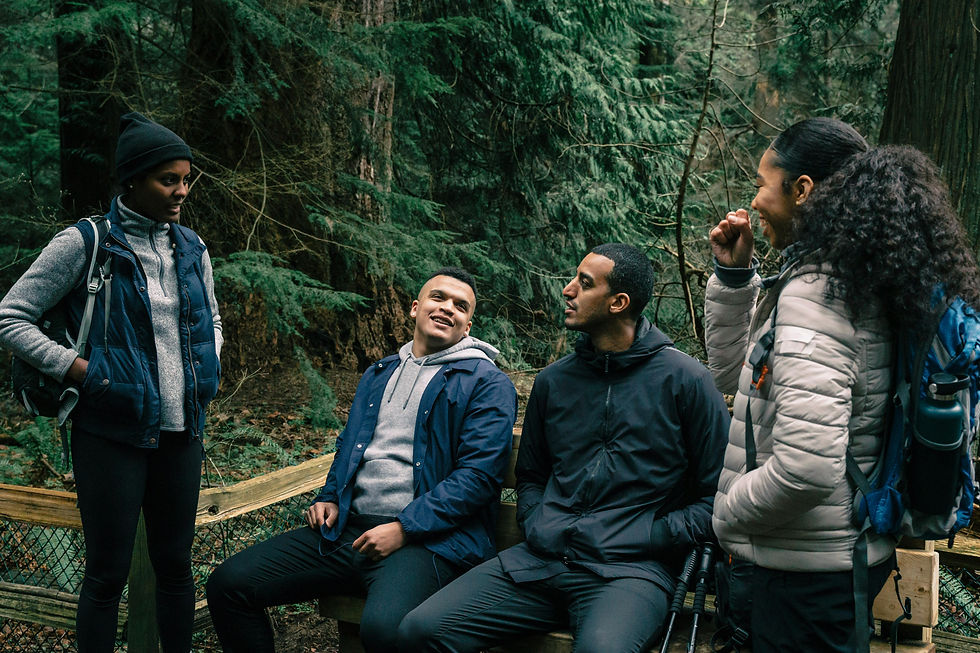About the Program
Harnessing Nature for Healing
Self-Development, Minority Mental Health, Gang Intervention, and Nature Schools
12:00 pm to 12:30 pm EST
Topic: Self-Development, Nature & mental health challenges faced by minority students
Presenter: Stacey Lawson, LMSW,MPH
Topic: Deepening Self-Development: A Collaborative Model Incorporating Nature-Based and Peer-Led Learning in Social Work Education for Latiné Undergraduate Youth addresses mental health challenges faced by minority college students through an upper-division social work elective.
This experiential, topic-driven course enhances self-development, personal values, and professional judgment through nature-based and peer-led learning. It focuses on bicultural social workers and Latiné cultures, teaching social work majors through culturally adapted, evidence-based perspectives. The course aims to improve students' understanding of professional behavior and self-care while fostering multicultural perspectives and upholding social justice standards.
12:30 – 1:00 pm EST
Topic: Introducing the Healing Power of Nature to Gang Intervention Specialists
Presenter: Brooke Babcock, MSW, LCSWA
Presentation Topic: Symptoms of secondary traumatic stress and burnout are high among gang intervention specialists. Community-based efforts are needed to support them. This presentation focuses on a collaborative project proposal offering nature-informed stress reduction strategies to reduce burnout and increase awareness of nature-based community spaces for gang intervention specialists.
1:00 pm to 1:30 pm EST
Presentation topic: Children’s Nature Schools: Commonalities & Outcomes
Presenter: Chi-Wei Chang, MSW
Presentation topic: A look into how elements of nature are incorporated into early childhood education, how children fare in these environments, and opportunities to further tie in nature-based learning.
There are common noted outcomes in children attending schools where nature is intentionally a central focus, even while the setup of these nature schools varies widely in founding purpose, educational philosophies, and setup of the school environment in terms of the area of natural and outdoor spaces available and how nature elements are incorporated in the classroom. We will take a look at the different models, the observed differences in accelerated behavioral learning and soft skills as compared to children receiving standard public education, as well as opportunities to further tie in nature-based learning. This research looked primarily into programs and classes for children aged 3-7.
Your Instructor
Stacey Lawson, LMSW,MPH

Stacey Lawson is the Program Director for the Department of Social Work at Whittier College and a
doctoral candidate in Social Work at California Baptist University. She holds an MSW from California
State University, Los Angeles, and is a Licensed Clinical Social Worker with specialized training in Nature-
Informed Therapy. Lawson focuses on mental health prevention and treatment in higher education,
addressing stigmas and inequalities affecting Latiné minority students. Passionate about fostering
mental well-being on college campuses, her doctoral research drives advocacy and educational
initiatives to enhance mental health awareness in academic settings.
Brooke Babcock, MSW, LCSWA
Brooke (she/her) is a Licensed Clinical Social Worker Associate who earned her MSW from the
University of North Carolina at Chapel Hill in 2020. She has experience working with children,
adolescents, adults, families, and groups in various settings. Brooke aims to create a safe, empowering
space for clients to achieve their goals through a holistic, experiential, and person-centered approach.
She focuses on building clients' strengths and values, fostering creativity, voice, and healing. Passionate
about environmental justice, Brooke supports building connections with the natural world. In her free
time, she enjoys working with textiles and spending time in nature.oke Babcock, MSW, LCSWA

